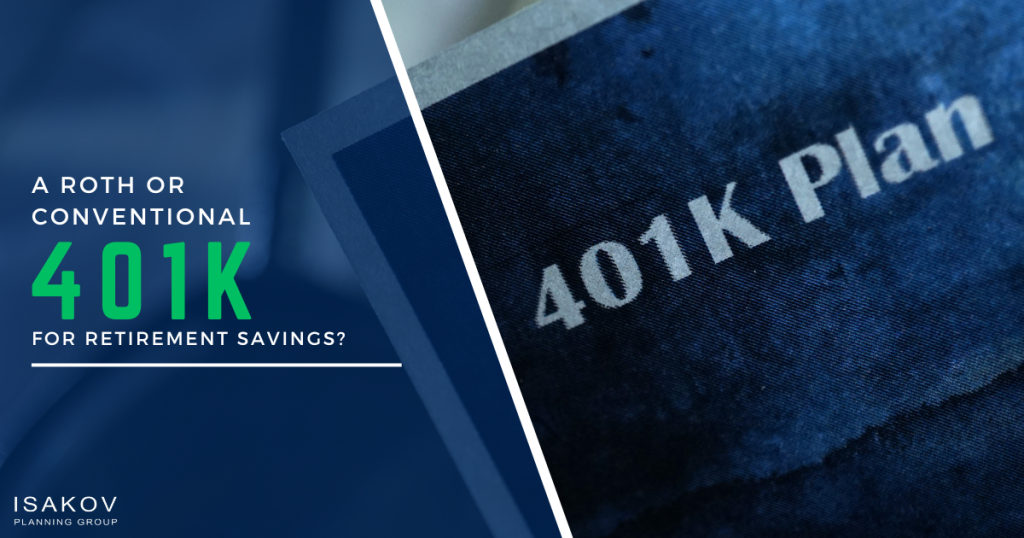How to Choose Between a Conventional or Roth 401(k) Plan

I’m a financial planner, and in my professional opinion, everyone with a job can, and should, put away whatever money they can for their future retirement. After all, it is nearly impossible to live on Social Security payments alone after retirement. One of the easiest savings decisions you can make is to use one of the investment vehicles offered by so many employers—the 401k. Even if you don’t work as a full-time employee, you can set up a 401(k) plan. The real issue is whether to choose a pretax, conventional 401(k) or a Roth 401(k) plan.
The principal difference is that with a conventional or standard 401(k), you pay no tax on the contribution you make (at the time you make it). Instead, you pay taxes anytime you withdraw money. With a Roth 401(k), you pay taxes on your contributions at the time you make them, but your investments grow tax free and can be withdrawn, tax free.
Well, that sounds simple enough. Why wouldn’t you choose a Roth 401(k)? Consider this situation: You are a young worker in a very low tax bracket. Chances are, when you are retired, you will be in a higher tax bracket. Paying taxes on your contributions make perfect sense in that case. But if you are already earning good money, you may be in a higher tax bracket than you would be once you retire. Paying taxes on the withdrawn amounts may make more sense.
However, there are also a couple of other factors that should be considered. One is what, if any changes, Congress makes to tax policy. For example, several provisions of the Tax Cuts and Jobs Act of 2017 will no longer be in effect after 2025, and these will affect allowable deductions and tax brackets. Many experts expect that taxes will rise once these provisions expire.
Additionally, the SECURE Act 2.0, which we covered in a previous discussion, has removed a minimum contribution requirement from the Roth 401(k) option, and allowed employer matches for the first time.
In an upcoming article, we’ll also discuss how your 401(k) choice could affect your children’s inheritance.
At Isakov Planning Group, we have the experience and expertise to help our clients choose a retirement savings program that’s right for them, based on their current situation, and their short- and long-term goals. Contact us today for a free consultation.
